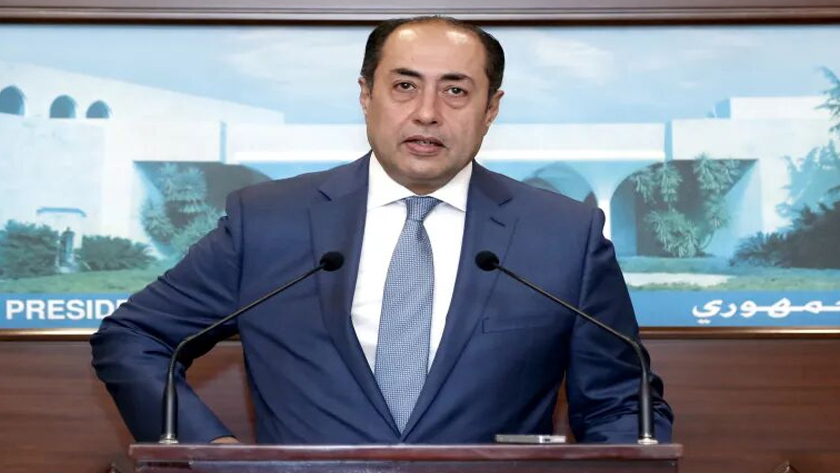AhlulBayt News Agency: The Arab League finally recognized the Lebanese Hezbollah as a constructive movement to contribute to the region's stability and extracted the Arab movement from the union's terrorist list after 8 years.
The Arab League enlisted Hezbollah as a terrorist organization on March 2, 2016, a short while after the Persian Gulf Cooperation Council's member states did so on March 2, 2016; an act that seemed to be taken due to two reasons. The first was the PGC action to introduce Hezbollah a terrorist group and the second was tensions created in Iran-Saudi Arabia ties.
Then after 8 years, the assistance to the Arab League's Secretary-General Hossam Zaki declared on Saturday, June 29, that the Arab organization no longer would call Hezbollah a terrorist group.
The declaration came one day after his trip to Lebanon as he told Egypt's news network al-Ciro in a statement:
Previously, in the decisions of the Arab League, Hezbollah was named as a terrorist organization and the member states had nothing to do with it, but now these countries have agreed not to use the label of terrorist for Hezbollah, and to establish ties with the movement would get possible."
Also, on Friday, the Lebanese newspaper Al-Akhbar reported that Zaki visited Beirut and met with Mohammad Raad, the Head of Loyalty to Resistance Bloc; It was the first contact between Hezbollah and the Arab League after more than a decade.
It seems that the Arab League's decision to remove Lebanon's Hezbollah from the terrorist list is due to two factors. The first factor is the change in the relations of some Arab countries, especially Saudi Arabia, with the Islamic Republic of Iran.
Relations between Iran and Saudi Arabia were revived in March 2023 and both sides began to take steps to strengthen relations.
The next factor was the Operation Al-Aqsa Flood on October 7, 2023, against the Israeli regime. Then, as the regime began its all-out war on Gaza, from the next day on October 8, Hezbollah launched attacks against the Israeli regime.
Numerous experts believe that the new decision made by the Arab League is a sign of a serious change in the political equations in the region following the Al-Aqsa Flood operation and the increase in the popularity of Lebanon's Hezbollah in the general public of the Arab nations of the region due to its support for the people of Gaza.
The Arab League's decision regarding Lebanon's Hezbollah can be said to be in line with the positive attitude of the leaders of the Islamic countries in the region regarding the need to overcome crises and reduce tensions in the region.
//129
The Arab League enlisted Hezbollah as a terrorist organization on March 2, 2016, a short while after the Persian Gulf Cooperation Council's member states did so on March 2, 2016; an act that seemed to be taken due to two reasons. The first was the PGC action to introduce Hezbollah a terrorist group and the second was tensions created in Iran-Saudi Arabia ties.
Then after 8 years, the assistance to the Arab League's Secretary-General Hossam Zaki declared on Saturday, June 29, that the Arab organization no longer would call Hezbollah a terrorist group.
The declaration came one day after his trip to Lebanon as he told Egypt's news network al-Ciro in a statement:
Previously, in the decisions of the Arab League, Hezbollah was named as a terrorist organization and the member states had nothing to do with it, but now these countries have agreed not to use the label of terrorist for Hezbollah, and to establish ties with the movement would get possible."
Also, on Friday, the Lebanese newspaper Al-Akhbar reported that Zaki visited Beirut and met with Mohammad Raad, the Head of Loyalty to Resistance Bloc; It was the first contact between Hezbollah and the Arab League after more than a decade.
It seems that the Arab League's decision to remove Lebanon's Hezbollah from the terrorist list is due to two factors. The first factor is the change in the relations of some Arab countries, especially Saudi Arabia, with the Islamic Republic of Iran.
Relations between Iran and Saudi Arabia were revived in March 2023 and both sides began to take steps to strengthen relations.
The next factor was the Operation Al-Aqsa Flood on October 7, 2023, against the Israeli regime. Then, as the regime began its all-out war on Gaza, from the next day on October 8, Hezbollah launched attacks against the Israeli regime.
Numerous experts believe that the new decision made by the Arab League is a sign of a serious change in the political equations in the region following the Al-Aqsa Flood operation and the increase in the popularity of Lebanon's Hezbollah in the general public of the Arab nations of the region due to its support for the people of Gaza.
The Arab League's decision regarding Lebanon's Hezbollah can be said to be in line with the positive attitude of the leaders of the Islamic countries in the region regarding the need to overcome crises and reduce tensions in the region.
//129

